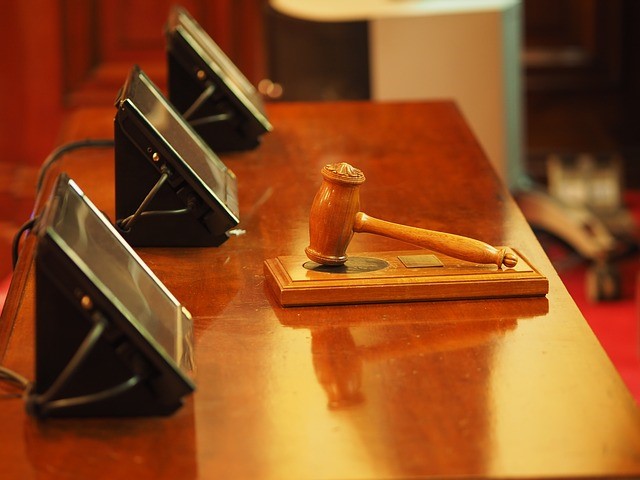
By: Donald Shelton, Staff Writer
In September 2019, after a decade and a half court battle, the U.S. Court of Appeals for the Eleventh Circuit upheld the district court’s order of contempt and $40 million sanctions against Warner Laboratories, Hi-Tech Pharmaceuticals Inc., and individual officers.[1]
In 2004, the Federal Trade Commission (FTC) pursued legal action against the defendants for false advertisement in violation of 15 U.S.C §§ 45 (a) and 52.[2] Under § 52, it is unlawful for any person, partnership, or corporation to disseminate false advertisements, by any means, for the purpose of inducing the purchase of or having an effect upon drugs, among other things.[3] Likewise, “unfair methods of competition in or affecting commerce, and unfair or deceptive acts or practices in or affecting commerce, are hereby declared unlawful.”[4] These claims arose from the defendants touting two of their weight loss drugs as “clinically proven to enable users to lose up to 42% of total body fat” and that consumers could “lose as much as 30 pounds in 2 months.”[5]
The district court eventually entered a permanent injunction against the defendants that prohibited them from making fat- and weight-loss claims about their products unless the defendants relied upon “competent and reliable scientific evidence that substantiates the representation” at the time of the claims.[6] The FTC defines “competent and reliable scientific evidence” as “tests, analyses, research, studies, or other evidence based on the expertise of professionals in the relevant area, that have been conducted and evaluated in an objective manner by persons qualified to do so, using procedures generally accepted in the profession to yield accurate and reliable results.” [7] Specifically as this relates to fat-and weight-loss products, the district court, agreeing with the FTC’s medical expert, noted that this meant randomized clinical trials (RCTs).[8] The defendants made several objections to the language of the injunction before it became permanent, but never directly related to the “competent and reliable scientific evidence.”[9]
The defendants appealed this ruling to the circuit court in 2009, but the appeals court affirmed the district court’s decision.[10] Again, the defendants did not raise the issue of the “competent and reliable scientific evidence” language.[11]
Also in 2009, the defendants began marketing three new products and one reformulated product with claims such as: “the gold standard by which all fat loss products are judged.”[12] The FTC then moved for an order to show cause why the defendants should not be held in contempt for violating the injunction.[13] The district court granted the motion based on the doctrine of collateral estoppel, saying that in another stage of litigation the district court ruled that only some form of a clinical trial could be used to substantiate any fat- or weight-loss claims.[14] Additionally, the court held the defendants liable for $40 million, which equaled the gross receipts of the four products in question.[15] On appeal, the circuit court determined that the district court had erred when it applied the doctrine of collateral estoppel and remanded the case back to the district court to determine if the defendants could produce evidence that would satisfy the standards of the injunction.[16]
On remand, the district court found the FTC produced clear and convincing evidence that the defendants’ claims were unsubstantiated regarding the injunction.[17] Again, the district court found the defendants in contempt and reissued the sanctions.[18] On appeal, the defendants argued that the injunction’s language was too ambiguous to be enforced.[19] The circuit court held that the defendants had waived their challenge to the clarity of the injunction as they had raised several issues related to the injunction in the past but nothing about “competent and reliable scientific evidence.”[20] In doing so, the court noted, “a person facing an injunction cannot stay silent, take actions he has reason to believe are prohibited, and then complain about alleged ‘ambiguity’ later.”[21] Accordingly, the circuit court affirmed the decision of the district court.[22]
The language of §§ 52 and 45 is clear in what the FTC deems as unlawful. Additionally, through their previous court proceedings, the defendants should have known what would constitute adequate justification of their claims. Even though the district court applied collateral estoppel inappropriately, the court still found the defendants to be in contempt on remand, which the circuit court upheld.
[1] Barbara Grzincic, IN BRIEF: 11th Circ upholds $40 mln fine for repeat weight-loss-drug marketers, Reuters Legal, September 19, 2019.
[2] FTC v. National Urological Group, Inc., 785 F.3d 477 (11th Cir. 2015).
[3] 15 U.S.C.A § 52 (West).
[4] 15 U.S.C.A § 45 (West).
[5] http://media.ca11.uscourts.gov/opinions/unpub/files/201715695.pdf
[6] Id. at 3-5.
[7] Id.
[8] Id. at 4.
[9] Id.
[10] Id.
[11] Id.
[12] FTC, 785 F.3d at 480.
[13] http://media.ca11.uscourts.gov/opinions/unpub/files/201715695.pdf
[14] Id. at 7-8.
[15] Id. at 8.
[16] Id. at 10.
[17] Id. at 10.
[18] Id. at 10.
[19] Id. at 12.
[20] Id. at 11.
[21] Id. at 16.
[22] Id. at 27.